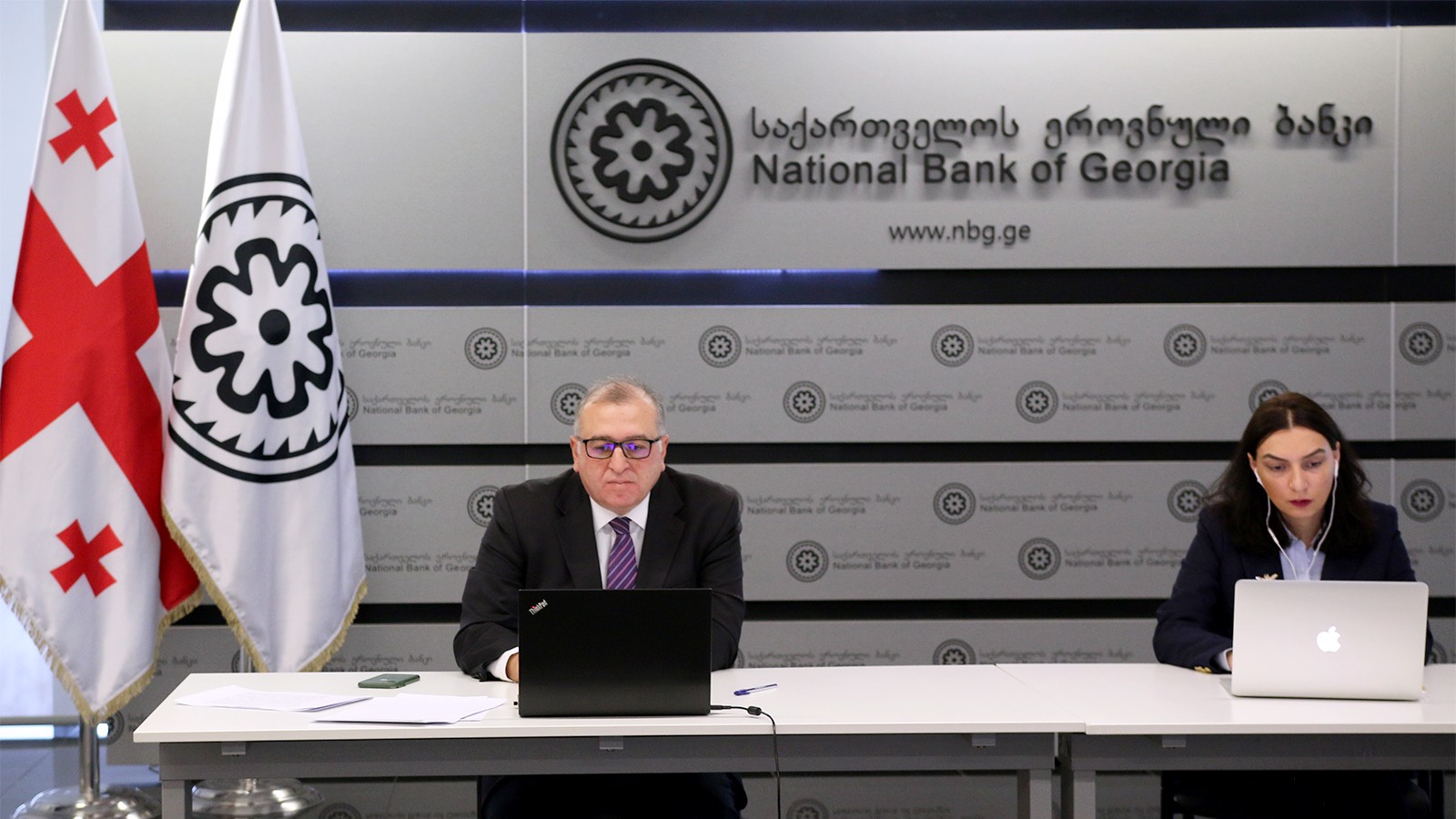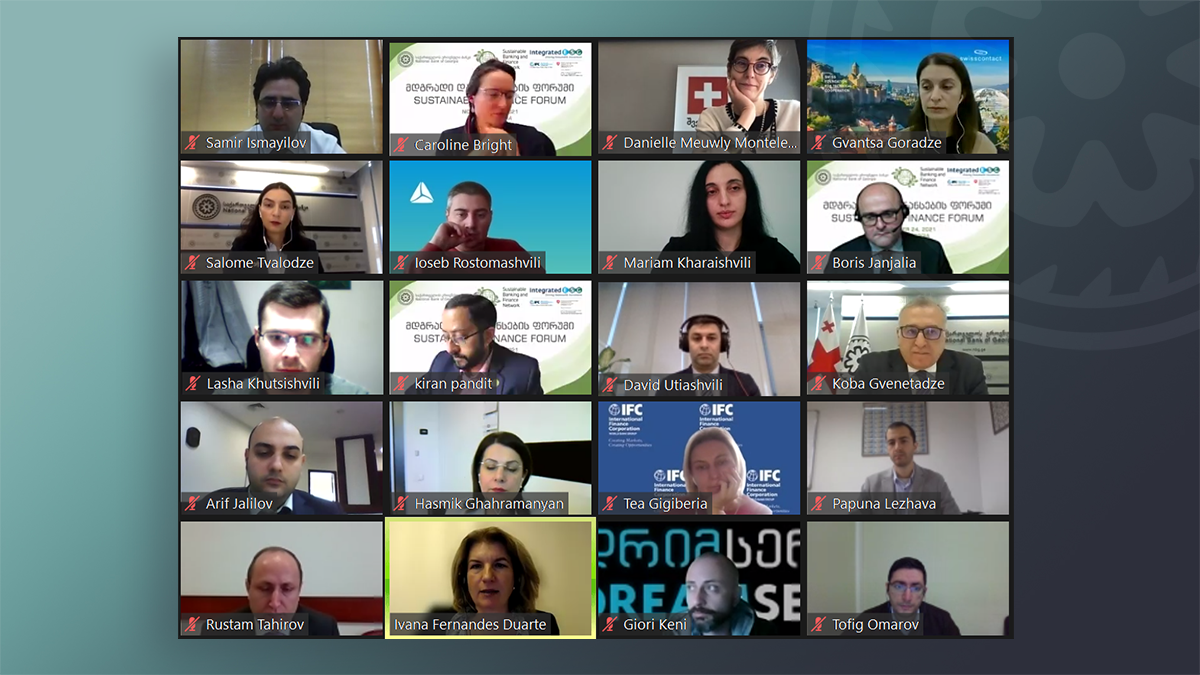
National Bank of Georgia, in collaboration with IFC and its Partners, Hosts Sustainable Finance Forum
The National Bank of Georgia (NBG) hosted an online Sustainable Finance Forum on November 24. The event was organized in collaboration with the International Finance Corporation (IFC), a member of the World Bank Group, in partnership with the Swiss State Secretariat for Economic Affairs (SECO) and the IFC-facilitated Sustainable Banking and Finance Network (SBFN), which the NBG joined in 2017. The online forum brought together governors and senior officials of central banks and financial market regulators from Europe and Central Asia, senior representatives from the Government of Georgia, senior representatives from SBFN member countries, IFC experts, the business community, and other stakeholders.
Koba Gvenetadze, Governor of the National Bank of Georgia, welcomed the participants with the opening remarks, underscoring the importance of sharing experience and knowledge among countries in developing national sustainable finance frameworks. He also highlighted the significance of collaboration between different stakeholders for successful implementation of a national sustainable finance action plan: “After the fruitful cooperation since 2018, the NBG has signed a second Cooperation Agreement with IFC this year to advance sustainable finance in Georgia. Within the scope of this agreement, the NBG is working on new projects while continuing to collaborate with IFC on awareness-raising events and capacity building. Today’s event is a great example of that collaboration, a great opportunity to bring together experts in the field with a variety of stakeholders to discuss sustainable finance development from different perspectives, share our experiences, and design solutions to challenges along the way.”

Ivana Fernandes Duarte, IFC’s Regional Manager for the South Caucasus, said: “Environmental and social sustainability is critical for business success and the COVID-19 crisis has made this even more urgent. Now is the time to accelerate sustainable, green and inclusive investment, to help the recovery and ‘build back better’. Financial institutions will need to provide most of the capital to address climate change. In doing so, they can unlock significant investment opportunities. IFC’s experience has shown that a strong foundation of environmental, social, and governance (ESG) risk management paves the way. Financial regulators, like the National Bank of Georgia, have a critical role to play in helping financial institutions enhance ESG standards. That is why IFC, leveraging the collective experience of the Sustainable Banking and Finance Network’s 44 member countries, continues working with the National Bank of Georgia on the reforms and regulations that can help open up opportunities for sustainable private investment.”
“The private sector has an essential role in achieving the Sustainable Development Goals (SDGs) globally. Financial Institutions are well positioned to help the private sector adapt to new economic realities and invest in green and responsible growth. Switzerland, acting through the State Secretariat for Economic Affairs (SECO), supports the IFC program towards sound Environmental, Social and Corporate Governance practices, which are a must for finance to be sustainable” said Danielle Meuwly, Regional Director of Cooperation, Embassy of Switzerland in Georgia.

The forum was the third event that the NBG has hosted in cooperation with IFC/SBFN on sustainable finance. The first workshop was organized in 2018. Since then, it has become an annual event that provides a platform for fruitful discussions with different stakeholders on the development of Sustainable Finance in Georgia and other countries in the region. Since the last conference, the NBG has made significant progress towards the development of a national Sustainable Finance Framework for Georgia. The NBG has embedded ESG considerations in the corporate governance code for commercial banks, developed ESG reporting and disclosure principles with a corresponding template, and started publishing a Sustainable Finance Status Report.
During the forum, participants discussed challenges regarding sustainable finance, the importance of ESG reporting, and the role of central banks in ensuring consistent and comparable disclosure. The participants also discussed the importance of green and social taxonomies in supporting sustainable finance flows and ensuring the credibility of new sustainability-focused financial instruments.